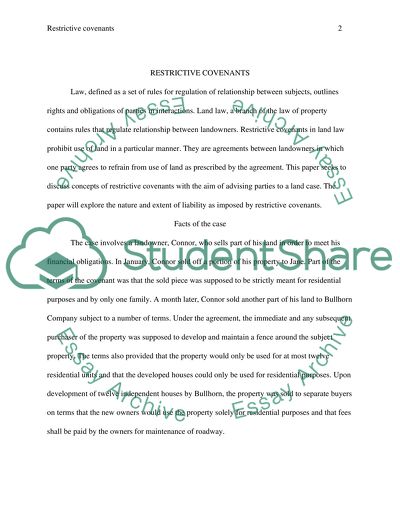Cite this document
(“RESTRICTIVE COVENANTS Essay Example | Topics and Well Written Essays - 1500 words”, n.d.)
Retrieved from https://studentshare.org/law/1444685-restrictive-covenants
Retrieved from https://studentshare.org/law/1444685-restrictive-covenants
(RESTRICTIVE COVENANTS Essay Example | Topics and Well Written Essays - 1500 Words)
https://studentshare.org/law/1444685-restrictive-covenants.
https://studentshare.org/law/1444685-restrictive-covenants.
“RESTRICTIVE COVENANTS Essay Example | Topics and Well Written Essays - 1500 Words”, n.d. https://studentshare.org/law/1444685-restrictive-covenants.


